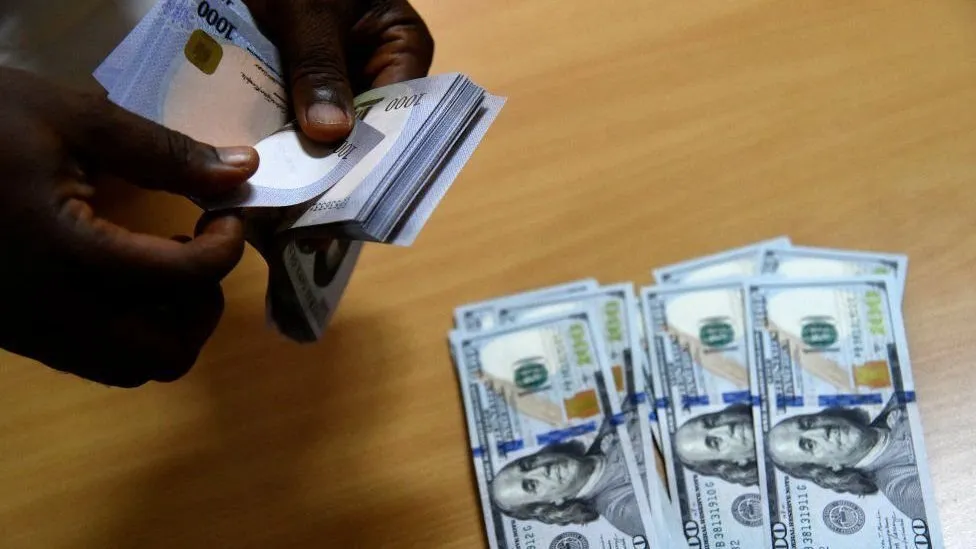On January 16th, 2024, forex turnover experienced a substantial surge, reaching $147.81 million, marking a 460.52% increase compared to the previous day. The Nigerian naira faced depreciation against the U.S. dollar in official and black markets.
Based on data from the Nigerian Autonomous Foreign Exchange Market (NAFEM), the domestic currency depreciated by 4.72%, closing at N878.57 to a dollar at the end of the business day. This reflects a N39.62 loss or a 4.72% decrease compared to the previous day’s closing rate of N838.95.
During the trading day, the naira recorded an intraday high of N1299.50/$1 and an intraday low of N720.50/$1, indicating a wide spread of N579/$1.
In the parallel forex market, where forex is traded unofficially, the naira depreciated further with the exchange rate quoted at N1280/$1, representing a 1.17% decrease from the previous day’s closing rate. Peer-to-peer traders quoted around N1325.64/$1.
Financial experts, including Mr. Olatunde Amolegbe, the former President and Chairman Governing Council of the Chartered Institute of Stockbrokers, emphasized the importance of market and participant confidence for exchange rate stability. He noted that efforts to clear FX commitment backs and reduce currency speculation through monetary policy tools could positively impact market confidence in the medium term.
Bismarck Rewane, Managing Director/CEO of Financial Derivatives Company Limited, predicted continued volatility for the naira due to lingering forex supply concerns. The scarcity of dollars is expected to fuel speculative buying, with more market participants opting for long positions on the dollar while shorting the naira. Efforts toward import substitution, improved security, better infrastructure, increased foreign direct investments, and encouraging local production are essential for long-term stability.











